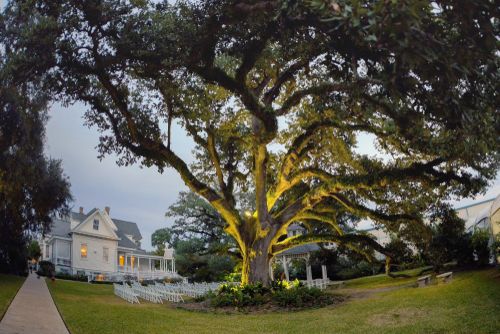 What’s wrong with plantation weddings? Plenty, according to both opponents of the trend and several major wedding websites. The New York Times’ Heather Murphy reported in December 2019 that Pinterest, The Knot, Wedding Wire, Brides, and Zola are changing their guidelines and practices regarding these weddings and venues. Couples hosting their nuptials at former plantations are also receiving more criticism for several reasons. To comprehend this controversy, it’s important to understand both the history and ethics surrounding the issue.
What’s wrong with plantation weddings? Plenty, according to both opponents of the trend and several major wedding websites. The New York Times’ Heather Murphy reported in December 2019 that Pinterest, The Knot, Wedding Wire, Brides, and Zola are changing their guidelines and practices regarding these weddings and venues. Couples hosting their nuptials at former plantations are also receiving more criticism for several reasons. To comprehend this controversy, it’s important to understand both the history and ethics surrounding the issue.
A Quick Overview of a Questionable Trend
Believe it or not, plantation weddings have been around for a while. These include the 2012 nuptials of actors Ryan Reynolds and Blake Lively, but journalist Amanda Hess disparaged the trend in a July 2011 Good piece. Journalist Koa Beck called the trend “disturbing” in a 2014 write-up for Salon, and Comedy Central’s Nightly Show lampooned the practice during a March 2016 episode. More recent criticisms came from New York wedding planner Allison Davis, who presented several arguments against the custom in a January 2018 post on A Practical Wedding.
Given plantations’ brutal history and racist legacies, why do some couples choose them as wedding venues? Essence’s Jasmine Grant points to language marketing these locations as “rustic,” “elegant,” and full of “Southern charm.” In her Salon article, Koa Beck cited more descriptions such as “romantic,” “old houses,” “dreamy,” “historic,” and “beautiful outdoor spaces.” Amanda Hess lists common justifications of the practice from both couples and venues:
- “It’s all in the past.”
- “We’re reclaiming the plantation.”
- “Plantations are pretty.”
- “You can work around the racism.”
Profit Intersects With Painful Legacies
One significant criticism raised about plantation weddings focuses on the minimization or erasure of the histories connected to them. In her Essence piece, Jasmine Grant blasts these venues’ marketing language for “completely erasing the fact that black people were once suffered and died on that very same soil.” This raises ethical questions, namely, former plantations profiting from these horrible legacies.
The Nation columnist Patricia J. Williams called out similar practices, referring to plantations as “monuments to slavery.” Williams added, “This [slavery] history is too resonant in my body. It’s not easy for me to work up any kind of nostalgia for a style of life that depended on slaves, hierarchy, imperiousness, and pomp.” Williams’ words may sum up the feelings of many black individuals about plantation weddings. Meanwhile, transgenerational trauma theory proposes that trauma can transmit to future generations through either genetics or shared familial culture.
A Civil Rights Group Sparks Critical Changes
As disapproval of plantation weddings grew, a targeted campaign by Color of Change prompted some major wedding and social media sites to revise their policies. Rashad Robinson, president of the civil rights advocacy group, contacted the companies in October to request a dialogue. Robinson condemned former plantations for profiting from what he called “glorifying sites of human rights atrocities.”
In response to Robinson’s and other denunciations, many media companies moved to change their practices. Brides has begun to remove all imagery and references to plantations. Zola will no longer list these locations in its wedding vendor directory. The Knot and its sister site Wedding Wire are currently drafting new rules that prohibit venues from using language that romanticizes or glorifies slavery. Martha Stewart Weddings responded to Robinson’s letter, expressing interest in discussing a new policy.
Mindful of the Past, New Paths for the Future
Years, decades, and centuries can separate us from traumatic and shameful historical events. Even so, their effects impact us in modern times. Learning about those events gives us a window into our history, but it also compels us to act. Doing what is right has consequences that reach far beyond a company’s bottom line. Compassion, ethics, empathy, and opposition to injustice are all critical if we hope to better society – and ourselves.
Add Your Comment